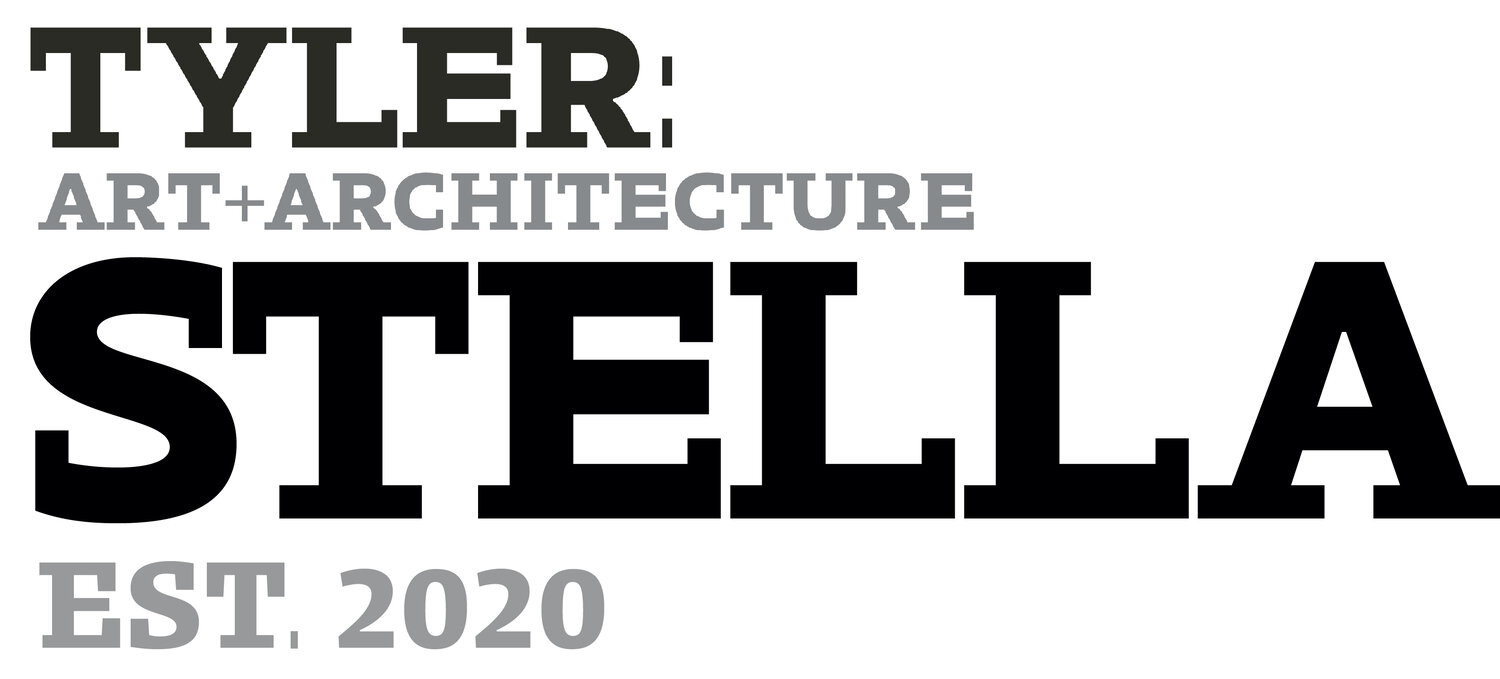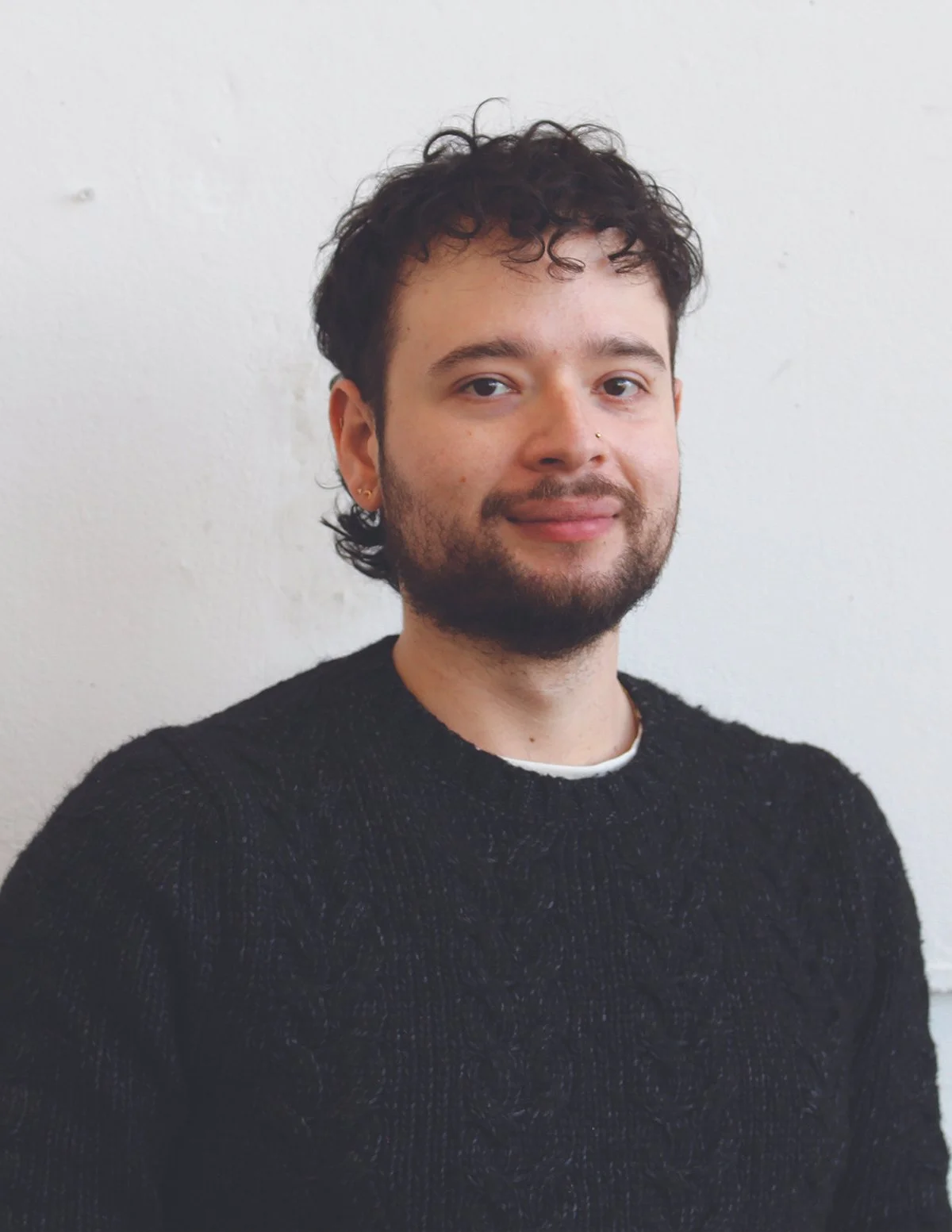Diego Juarez
MFA Painting, 2025
Emerging from time spent thinking about being a small part of a larger whole, I ask how the landscape is an idea that is produced and reproduced by overlapping personal and political systems. Language is explored through poetics and transliterated as painting, sculpture and printed matter. Through the language of abstraction and discarded material, these works become complex sites of negotiation between external and intrapersonal forces. Like abstraction, poetry’s ability to deconstruct and reconstruct language creates new understandings, building connections between cultural narratives, hidden labor, personal histories, and environmental disruption.
Intuition built from metaphorical and allegorical inferences guide me toward objects and spaces perceived as defunct. In transitional sites like open lots, train yards, and highway shoulders, I prioritize reality by collecting and collaborating with material. Chance is embraced and deep relationships form over time. Various printmaking techniques, collage, and gestural mark making prompt subtle transformations. Abrasion, carving, staining, and rubbing fully incorporate materials into incongruous abstract surfaces, each holding a distinct record of time. Digital images and text migrate in and out of the work as forms of notation, in recognition of the ways perception is always mediated. Oscillating between the intimate size of the page and scales that subsume the body creates a deep awareness of space.
Landscapes are often anthropomorphized and flattened into images onto which human beings project desires. As political and economic propaganda, landscape painting has a long history as a tool for justifying colonization and mythologizing westward expansion. Utilizing this modality, I decenter human narrative and foreground cycles of destruction and repair as a record of planetary time. This time scale lets us navigate space more compassionately, as extensions of our planet rather than disparate individuals.
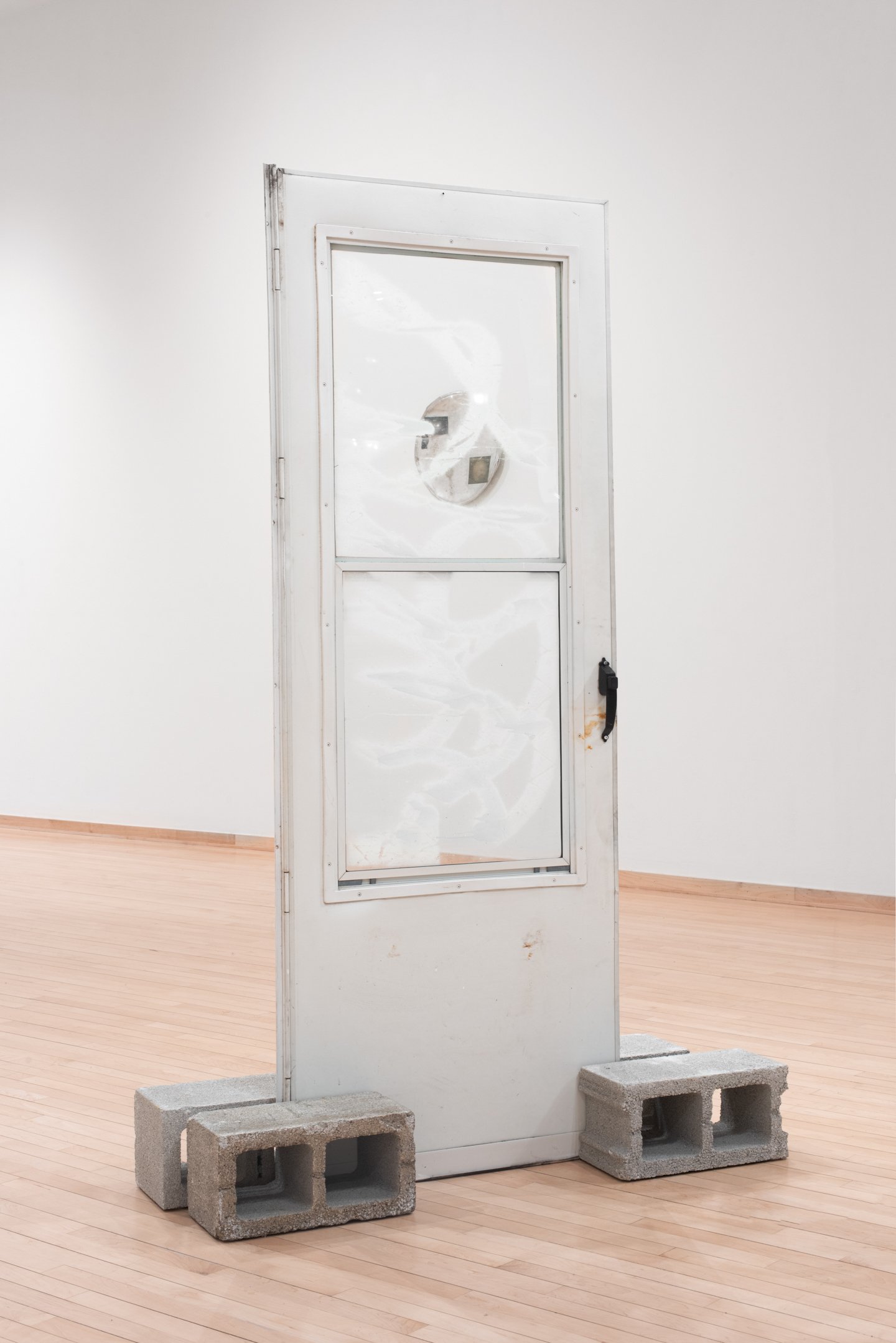
"Lanmark", Found door (31st and Spring Garden), Cinderblocks, 79” x 40.5” x 17.5” Photo Credit: Neighboring States
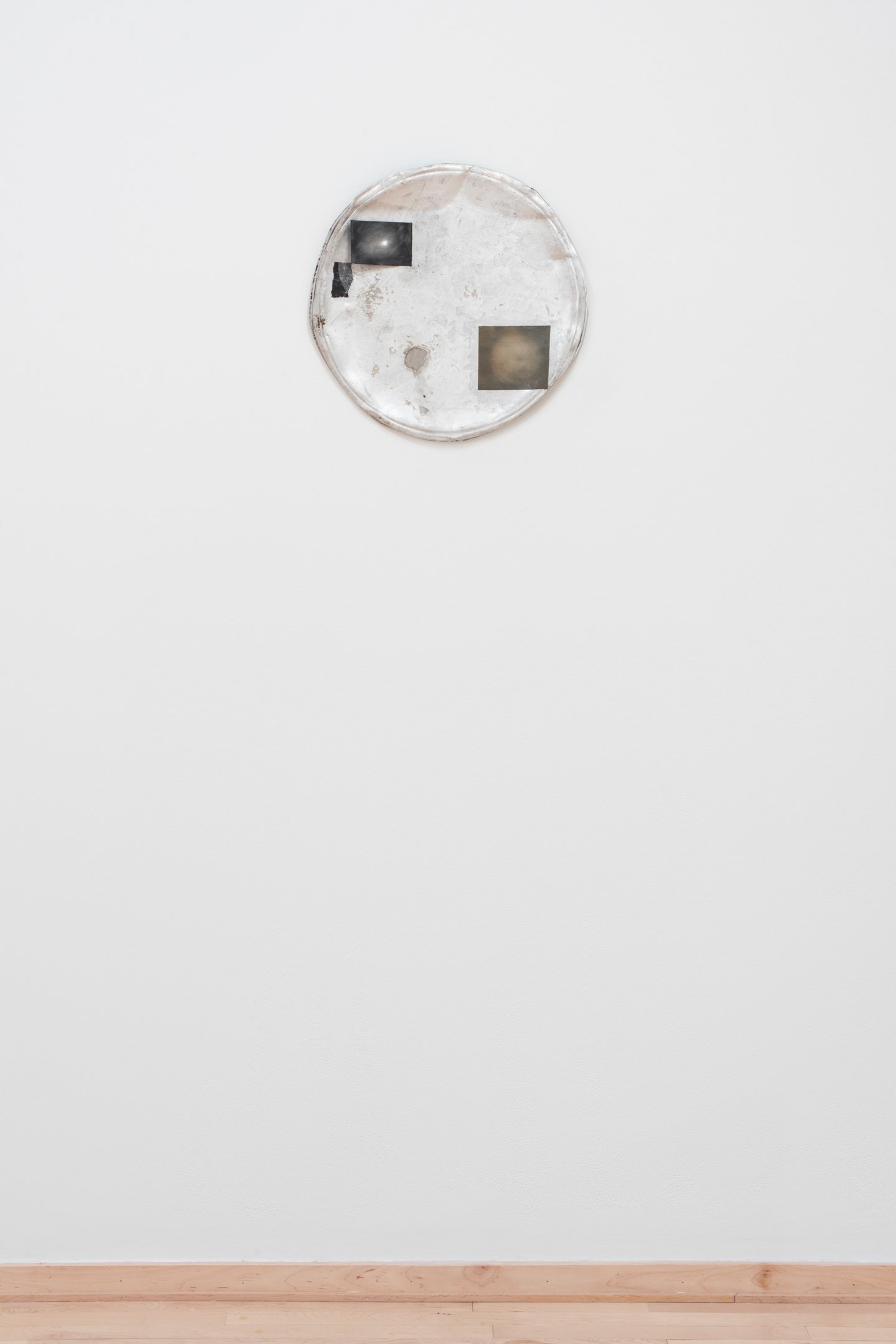
"Re: The message you hid in the moon" Found Aluminum Lid (Norris and American), Ink on paper, Inkjet Print, and Polyurethane, 19.5” Diameter, Photo Credit: Neighboring States
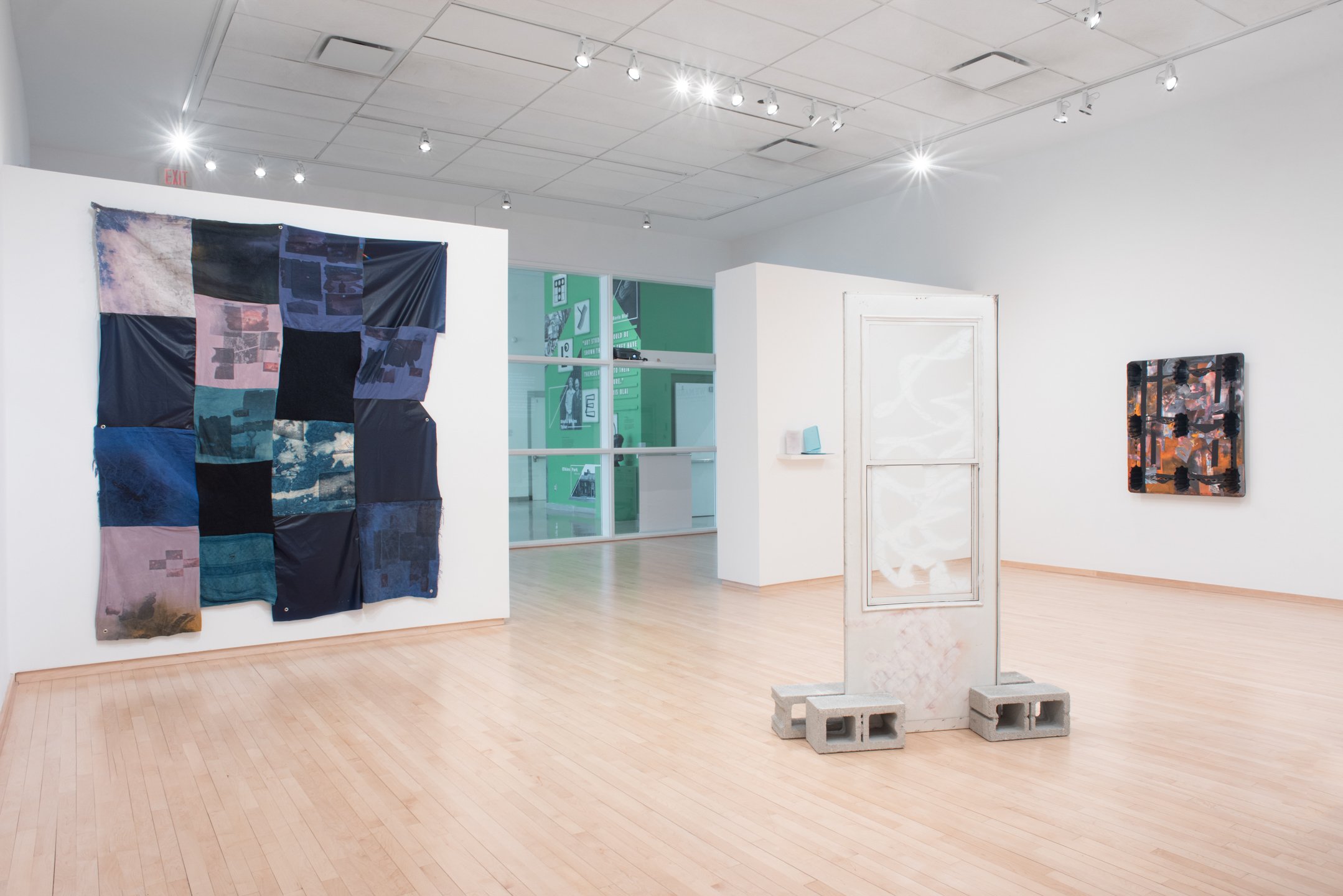
Installation view, Dimensions variable, Photo Credit: Neighboring States
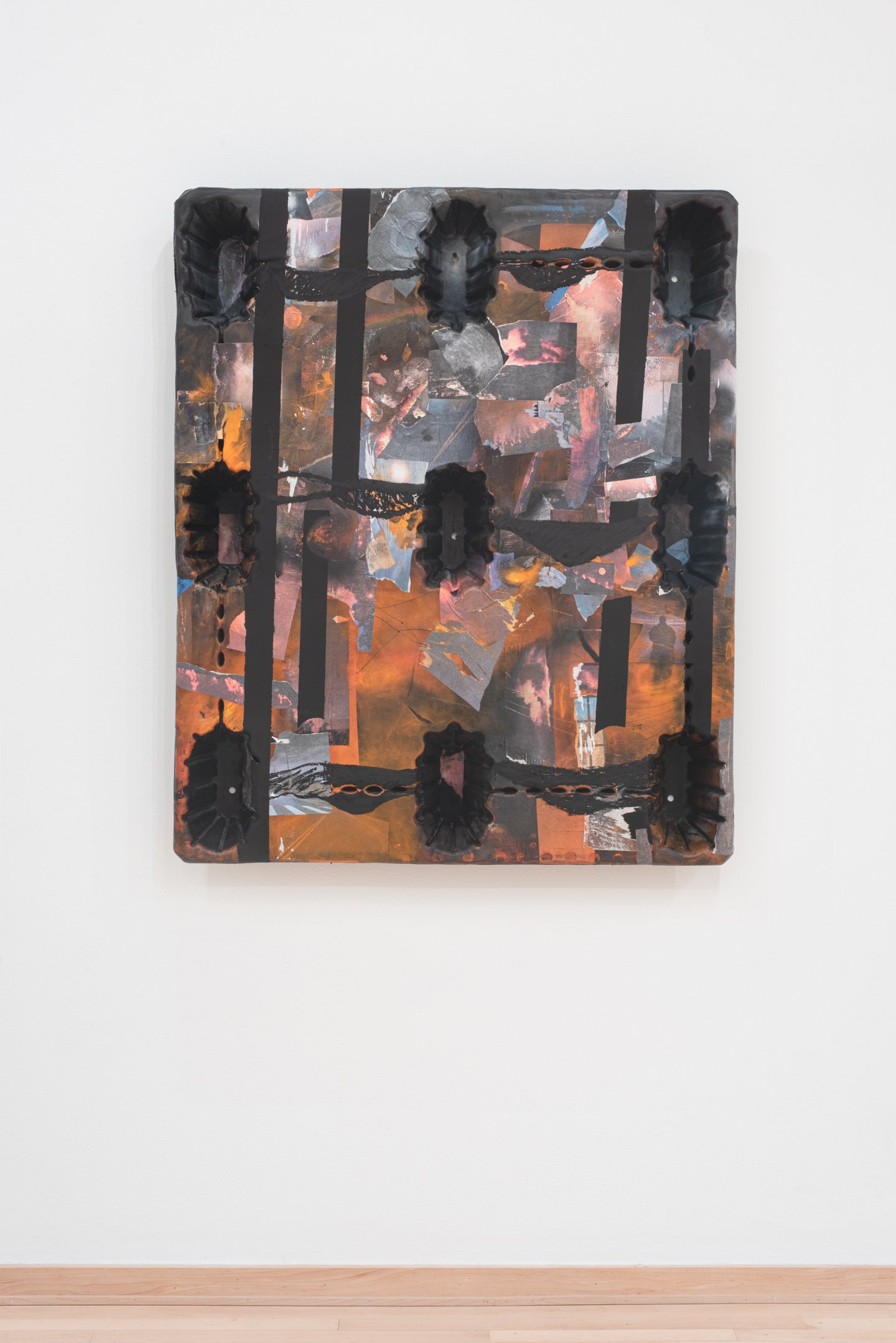
"Fireproof," Found USPS pallet (31st and Spring Garden), collage, acrylic, flashe, polyurethane, and oil stick, 48”x 40”, Photo Credit: Neighboring States
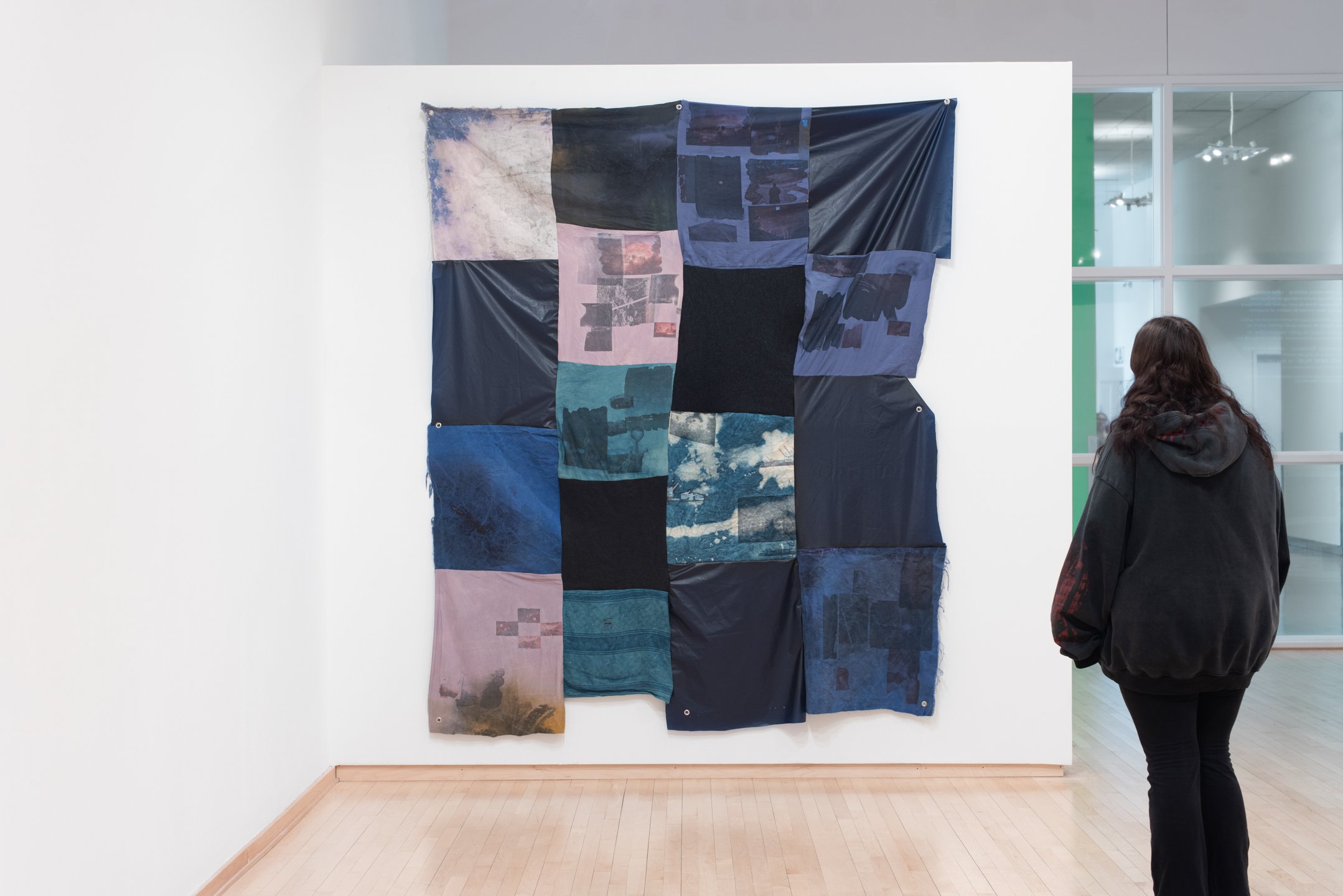
"And sky," Recycled canvas, recycled latex, wool, acrylic, bleach, image transfer on artist’s bedsheets, 27 year old dish towel, natural and synthetic indigo dye, 108” x 75”, Photo Credit: Neighboring States
Diego Juarez
Diego Juarez is a visual artist, poet, and curator from San Pedro, CA, currently working in Philadelphia, PA. He holds an MFA in Painting from the Tyler School of Art and Architecture and a Bachelor of Art in English and Fine Art from the University of California, Irvine. His multidisciplinary practice spans painting, drawing, printed matter and sculpture. Through the poetics of landscape, abstraction, and material transformation he asks how existing identities and narratives can be reconstructed.
